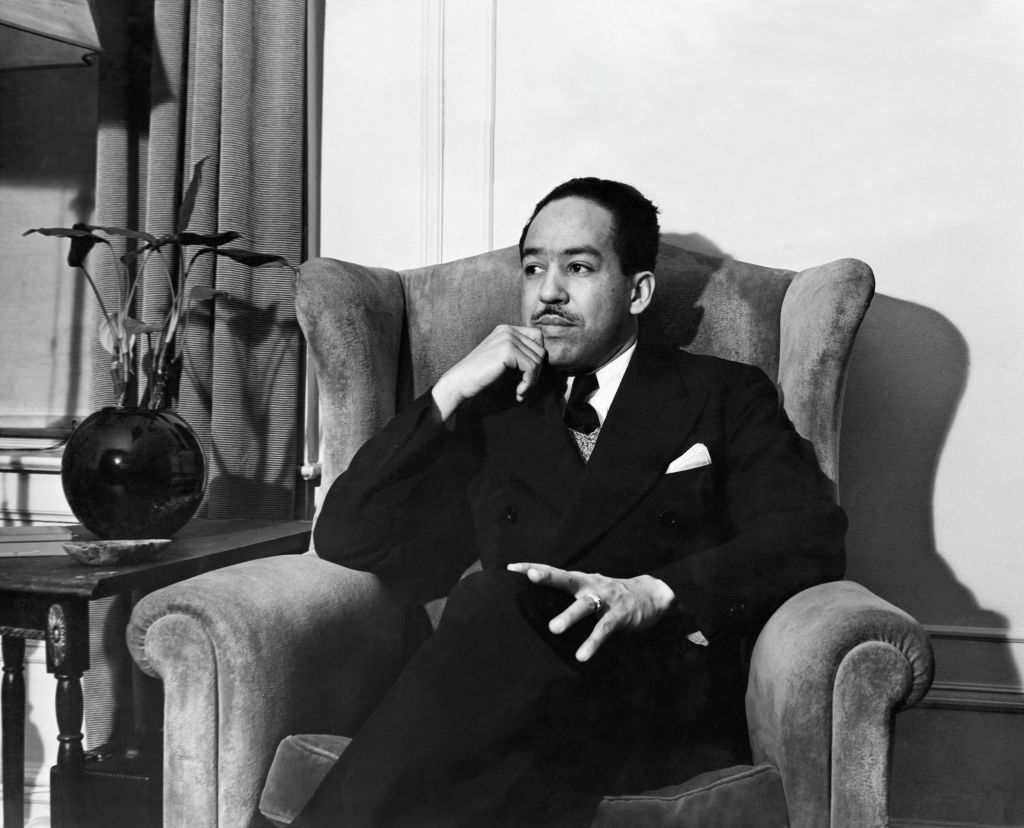Langston Hughes: 7 Iconic Quotes Showcasing His Poetic Genius
7 Iconic Quotes From Langston Hughes Showcasing His Poetic Genius
Share the post
Share this link via
Or copy link

James Mercer Langston Hughes was an American poet, social activist, novelist, playwright, and columnist from Joplin, Missouri. One of the earliest innovators of the literary art form called jazz poetry, Hughes is best known as a leader of the Harlem Renaissance. Langston Hughes attended Lincoln University from 1926 – 1929. Source: Lincoln University / Getty
The man. The poet. The legend.
Embodying all three of the above titles, Langston Hughes was known as a key figure in both literary and artistic spaces during the Harlem Renaissance era. During the 1920s and 1930s, Hughes became a prominent and well-known voice throughout the city. Celebrated for his jazz-like poetry that zoomed in on the black experience throughout America, his work was relatable and revolutionary. His influence and love for jazz music shined through his work, creating a prose-filled infusion of jazz and blues that distinguished him from other rising poets of that time. Frequent visits to nightclubs and bars created a space for Hughes to harbor strong relationships with musicians like Ma Rainey and Charles Mingus who further inspired his popular poetry.
Leaving his mark on not only the world of literature but also the lives of African Americans past and present, Langston Hughes is a literary genius who paved the way for many poets and musicians to follow.
RELATED CONTENT: “I Grew Up Learning How To Protect Men Who Hate Me”: Poets Share The Black Woman’s Experience
In honor of the Renaissance man’s birthday (February 1), here’s seven powerful lines from Langston Hughes and his highly renowned poetry:
1. Poem: Mother to Son (1922)
Well, son, I’ll tell you:
Life for me ain’t been no crystal stair.
It’s had tacks in it,
And splinters,
And boards torn up,
And places with no carpet on the floor—
Bare.
2. Poem: Dreams (1923)
Hold fast to dreams
For if dreams die
Life is a broken-winged bird
That cannot fly.
Hold fast to dreams
For when dreams go
Life is a barren field
Frozen with snow.

Lincoln University Commencement in Pennsylvania, the recipients of Honorary Degrees are photographed left to right, poet Langston Hughes, physician Nathan F. Mossell and judge Herbert E. Millen. Source: Lincoln University / Getty
3. Poem: The Weary Blues (1925)
I got the Weary Blues
And I can’t be satisfied.
Got the Weary Blues
And can’t be satisfied—
I ain’t happy no mo’
And I wish that I had died.”
And far into the night he crooned that tune.
The stars went out and so did the moon.
The singer stopped playing and went to bed
While the Weary Blues echoed through his head.
He slept like a rock or a man that’s dead.
4. Poem: Minstrel Man (1925)
Because my mouth
Is wide with laughter
And my throat
Is deep with song,
You do not think
I suffer after
I have held my pain
So long?
5. Poem: I, Too (1926)
I am the darker brother.
They send me to eat in the kitchen
When company comes,
But I laugh,
And eat well,
And grow strong.

Langston Hughes’ in 1931. Source: Culture Club / Getty
6. Poem: Let America Be America Again (1926)
I am the poor white, fooled and pushed apart,
I am the Negro bearing slavery’s scars.
I am the red man driven from the land,
I am the immigrant clutching the hope I seek—
And finding only the same old stupid plan
Of dog eat dog, of mighty crush the weak.
7. Poem: Harlem (1951)
What happens to a dream deferred?
Does it dry up
like a raisin in the sun?
Or fester like a sore—
And then run?
Does it stink like rotten meat?
Or crust and sugar over—
like a syrupy sweet?
RELATED CONTENT: 7 Nikki Giovanni Poems Every Black Woman Should Read







